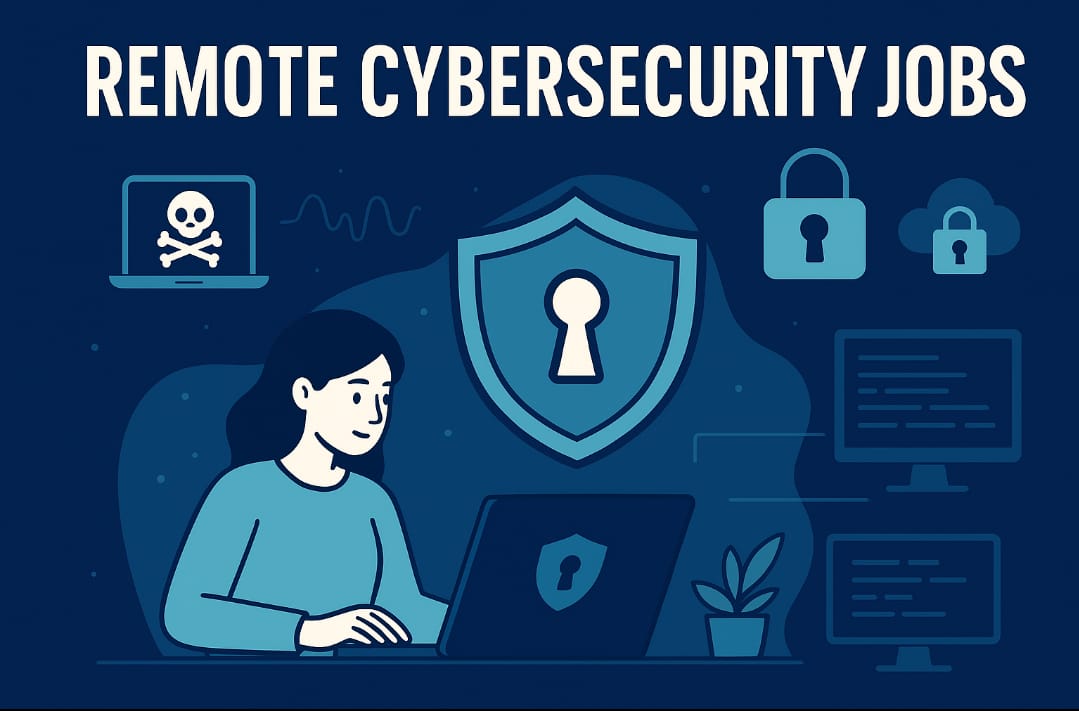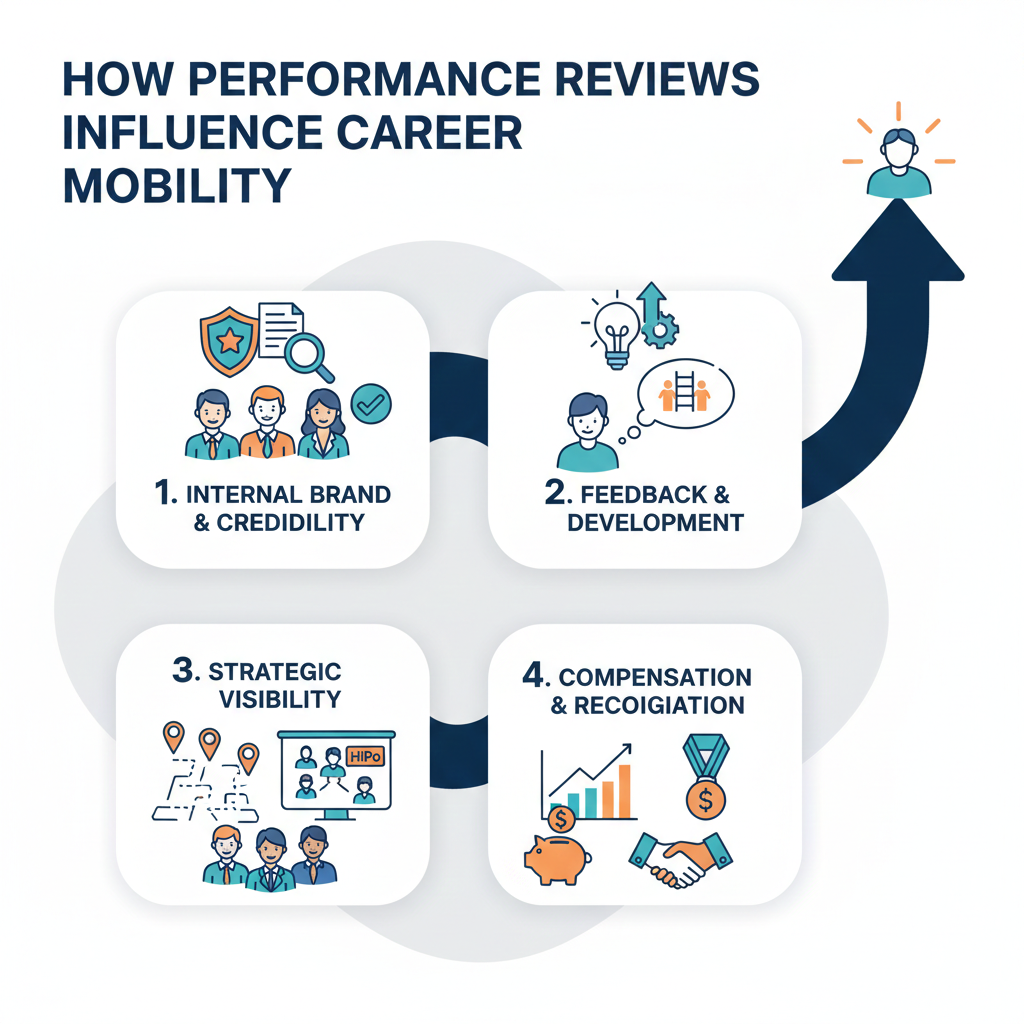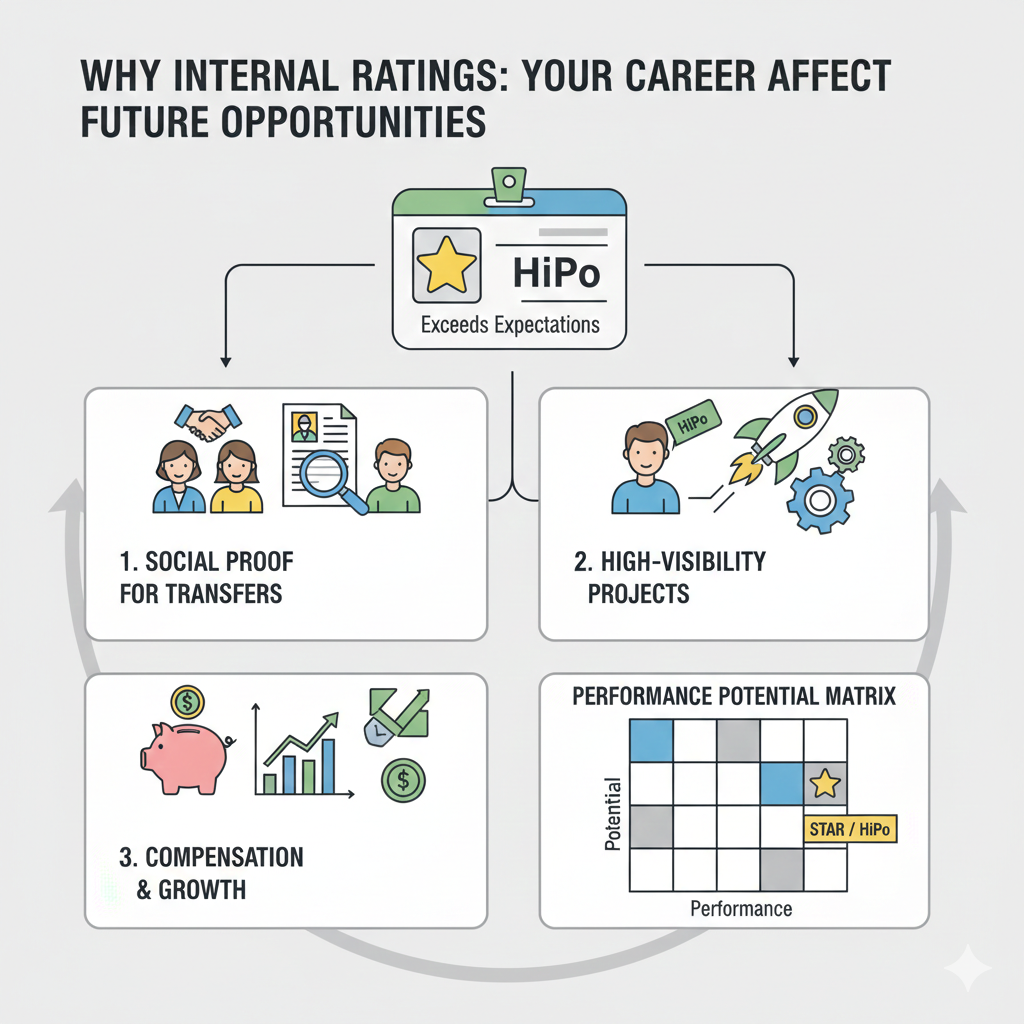Introduction
Nowadays every sector is digital, whether banking, shopping, healthcare, education, or government services. Earlier, the demand and importance were not as great for cybersecurity. But every day we face cyber threats and hacking attempts, and if a company is not secure, its data can suffer from financial loss, and there will be a risk for brand reputation as well. That’s why every industry needs cybersecurity professionals.
The rise of remote work has given more opportunities to this field. Earlier, companies were hiring their local city or country experts, but now the global hiring trend is ongoing. It means a cybersecurity expert from India can protect the system of a US company from India, and a professional from Europe can handle for Asia-based startups. Remote work has broken the geographical barriers and created endless opportunities for cybersecurity professionals.
If we talk about stats. According to a report from Cybersecurity Ventures, the annual cost of cybercrime till 2025 is expected to reach $10.5 trillion. Also, more than 3.5 million cybersecurity job roles are vacant worldwide because of the shortage of skilled professionals. These numbers show that cybersecurity is a booming field where demand is high and supply is low.
That’s why if you are exploring remote job opportunities, then cybersecurity is a field that provides you with a stable career, high growth, and global exposure.
Want a quick summary of this article? Read here.
What is a Remote Job?
Remote jobs are basically those jobs in which you don’t have to go to the office daily. You can work from home or anywhere where the internet is available. In remote jobs, employees and employers connect using online tools such as Zoom Meetings, Slack Chat, Google Meet, Email, or Project Management Apps. It makes the flow of work smooth without physically being present in the office.
Remote jobs offer flexible options in which you can work according to your convenience. These jobs are very popular in today’s digital era because they save time, remove the problem of commuting, and make it easier to achieve a work-life balance.
Remote jobs are becoming popular every day because they create a win-win situation for both employees and the company. Remote jobs provide flexibility to employees, as they can work from anywhere, according to their convenience, they save on the cost of travel and commute, and can spend more time with their family. Also, it is beneficial for companies as well because companies do not have to spend money on office space, electricity, and infrastructure. Besides, these companies also get the chance to hire global talent without geographical boundaries.
After COVID-19, people have gained experience from work-from-home and they realized that working from home does not reduce productivity instantly; sometimes the productivity of employees doubles. That’s why remote jobs are not only a trend, but it is a long-term career option.
What is Cybersecurity?
Cybersecurity is a practice in which experts use to protect computer systems, networks, and digital data from hackers, viruses, phishing, and any other cyber threats. It means that, just as it is important to lock the house to protect it from theft, cybersecurity works like a lock and shield for data in this digital world.
Different practices are included in this such as,
- Data protection : To keep sensitive information safe.
- Network security : Saves the internet and servers from unauthorized access.
- Application security : Fixing vulnerabilities in apps and software.
- User awareness : Educates people to save themselves from phishing emails and fake links
In short, cybersecurity is a digital bodyguard that secures our data and systems.
Top Remote Cybersecurity Jobs
1. Security Analyst in Cybersecurity
The work of a social analyst is to monitor the systems and networks of companies continuously. They analyze and detect suspicious activities and handle cyber attacks through incident response. Basically, they are frontline defenders who ensure the safety of data.
2. Penetration Tester (Ethical Hacker)
Penetration testers are also called Ethical hackers. The role is to hack the systems and networks of companies but legally. They find vulnerabilities and loopholes through which a real hacker can attack. Companies then fix their finding to secure the system.
3. Security Engineer in Cybersecurity
Security engineers work like architects. They design secure networks and systems, implement firewalls and encryption tools, and ensure that the infrastructure maintains a strong defense line. Because of the security engineer, it becomes difficult for Cyber attackers to hack the data.
4. Cloud Security Specialist in Cybersecurity
The demand for Cloud Security specialists has increased because of the boom in cloud computing. These professionals protect stored data and apps on platforms like AWS, Azure, and GCP. They use access control, encryption, and monetary tools so that sensitive data doesn’t reach unauthorized users.
5. SOC Analyst (Security Operations Center)
The role of the security operation center analyst is based on real-time monitoring and threat detection. They work 24/7 from a security operations center and if they detect any unusual activity so they take action immediately. Their fast response stops attackers from causing bigger damage.
6. Information Security Manager
It is a senior-level role in which a manager oversees the whole security program of the company. They make policies and guidelines, lead teams, and ensure the overall security of the organization. The main focus is not only on technical defense but also on strategic planning and compliance.
7. Cybersecurity Consultant
A cybersecurity consultant is an expert advisor who works for different organisations. They assess how secure the systems and processes of the company are. And then recommend customized strategies and best practices. They also prepare companies for compliance and audit.
8. Threat Intelligence Analyst
The work of a threat intelligence analyst involves researching new cyber threats, malware, and attack patterns. They understand the tactics and techniques of attackers and then prepare the organization against them. Their insights are very helpful to prevent future attacks.
9. Compliance & Risk Analyst
Every organization needs to follow rules and the regulations of their industry, such as GDPR for Europe and HIPAA for the healthcare sector. Compliance and risk analysts ensure that the company is aligned with these laws and also identify and minimize the cyber risk.
10. Application Security Engineer
An application security engineer searches for vulnerabilities in software and apps and then fixes them. They do code review, penetration testing, and bug fixing with developers so that the app can be secure and hacker-proof.
How to Land a Remote Cybersecurity Job?
Build a portfolio
For remote cybersecurity jobs, companies and clients don’t just hire you by looking at your resume — they need proof that you can solve real-world problems. That’s why building a portfolio is a must. You can create your own labs, upload projects on GitHub, or showcase your practice work from platforms like HackTheBox and TryHackMe. If you’ve contributed to any open-source project, make sure to include that link in your portfolio too. All these things will show hiring managers that you’re not only strong in theory but also skilled in practical work.
Get certifications.
Cybersecurity is a field in which certification validates your knowledge. If you are a beginner, then CompTIA Security+ or Certified Ethical Hacker is the best to start. At an advanced level, you can take certifications such as CISSP, CISM, and OSCP. It not only makes your resume strong, but also gives confidence to companies and clients that you understand the industry standard. In a remote job, a certificate is a big plus point because you did not get the chance to meet the recruiter personally and show your skills.
Apply on Job platform
Now let’s talk about job opportunities. You have to search for remote cybersecurity jobs on the correct platform. One of the best platform to search for remote cybersecurity job is Best Job Tool.
It is a best job tool to find relevant jobs according to your skills and interests. It is a dynamic job search platform dedicated to connecting talented individuals with leading employers across various industries.
- Has user-friendly interface.
- Provide comprehensive resources to help job seekers find their ideal roles.
- Offer detailed job descriptions, including responsibilities, qualifications, and requirements.
- Ensure candidates have all the information they need to make informed career decisions.
Explore top job opportunities and advance your career with Best Job Tool.
Benefits of Remote Job
Flexibility in Schedule –
The biggest advantage of remote work is that you can decide the timing of your work. If you are an early riser, then you can finish your work in the early morning, and if you are a night owl, then you can work at night. With this flexibility, you can work according to your energy levels and productivity. Plus, personal errands and emergencies also become easy to handle without formally taking leave.
No Commute –
There is no office commute, which means you can save time and money on fuel. Besides these, the stress of traffic and daily travel also decreases. You can invest this extra time in your productive work or in your personal life. Plus, your health also gets better because you don’t have to go through pollution and travel fatigue.
Better Work-Life Balance –
There are unnecessary meetings, gossip, or interruptions in the office environment. In remote work you set your workspace according to your comfort zone to increase focus. Less destruction means more efficient work. This is especially for those people who want to stay self-motivated and disciplined.
Cost Savings –
Expenses are reduced in remote work because there is no cost of transportation, parking, lunch, coffee, or formal office wear. These savings become a good amount at the end of the month. You can also manage your budget better by staying at home.
Location Independence –
Remote work gives you the freedom to work from the location of your choice — whether it’s your home, a café, or a scenic hill station. This is especially beneficial for people who love to travel or don’t want to be bound to a specific city. It brings variety to your lifestyle and keeps your motivation high.
Conclusion
Cybersecurity is a field in which demand increases every year, and remote work has made it more accessible. Now companies not only hire talent from their local area but also recruit their own board-qualified professionals from worldwide. It means if you have the right skills, certification, and a strong portfolio, then you can get an opportunity easily according to your preferences.
The biggest advantage of a remote cybersecurity job is that you can work at a global level from your comfort zone. But the competition is very high, which is why you should be updated with the latest tools and continue learning. Showing your practical skills is very important.
If you genuinely want to start a remote cybersecurity career, then start preparing from today. Build your portfolio, certifications, and put consistent efforts on job platforms. Starting can be tough, but after that, growth and opportunities will be endless.
Overall, a cybersecurity job is a safe, rewarding, and future-proof career option. You just have to follow your path with full dedication and consistency.







Leave a Reply